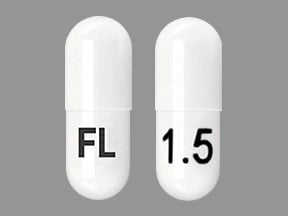
Vraylar Coupons & Savings Card – Discount Prices from $1482.01
My prescription
Edit
1.5MG, Vraylar (30 Capsules)
Select pharmacy

CVS
$1594.10
COUPON PRICE
Albertsons
$1482.01
COUPON PRICE
Walmart
$1639.36
COUPON PRICE
Walgreens
$1641.95
COUPON PRICEVraylar savings card
Show this card to your pharmacist
Albertsons
$1482.01
BIN
ID
PCN
GRP
015995
LHKPX304271
GDC
DR33
Powered by
Related atypical antipsychotics prescriptions
More prescriptions for schizophrenia
Related atypical antipsychotics prescriptions
More prescriptions for schizophrenia
Price history for Vraylar
30 Capsules, 1.5MG
Average retail price for Vraylar
Average SaveHealth price for Vraylar
Our price history data is based on aggregated prescription data collected from participating pharmacies in America. Our prescription data updates daily to reflect the latest price changes. If you notice a missing data point, it means there wasn't sufficient data available to generate a monetary value for that date.
*Retail prices are based on pharmacy claims data, and may not be accurate when we don't have enough claims.
Vraylar dosage forms
Dosage Quantity Price from Per unit 0.5MG 30 Capsules $1634.25 $54.48 0.75MG 30 Capsules $1634.25 $54.48 1.5MG 30 Capsules $1543.95 $51.47 1.5MG 10 Capsules $524.65 $52.47 1.5MG 20 Capsules $1034.30 $51.72 3MG 10 Capsules $524.56 $52.46 3MG 20 Capsules $1034.12 $51.71 3MG 30 Capsules $1543.68 $51.46 4.5MG 30 Capsules $1543.19 $51.44 6MG 30 Capsules $1542.43 $51.41
| Dosage | Quantity | Price from | Per unit |
|---|---|---|---|
| 0.5MG | 30 Capsules | $1634.25 | $54.48 |
| 0.75MG | 30 Capsules | $1634.25 | $54.48 |
| 1.5MG | 30 Capsules | $1543.95 | $51.47 |
| 1.5MG | 10 Capsules | $524.65 | $52.47 |
| 1.5MG | 20 Capsules | $1034.30 | $51.72 |
| 3MG | 10 Capsules | $524.56 | $52.46 |
| 3MG | 20 Capsules | $1034.12 | $51.71 |
| 3MG | 30 Capsules | $1543.68 | $51.46 |
| 4.5MG | 30 Capsules | $1543.19 | $51.44 |
| 6MG | 30 Capsules | $1542.43 | $51.41 |
What is Vraylar mainly used for?
Vraylar is mainly used for the treatment of schizophrenia and bipolar disorder, specifically for managing manic or mixed episodes associated with bipolar I disorder. It may also be used as an adjunctive treatment for major depressive disorder.
How much weight gain is associated with Vraylar?
Weight gain is a potential side effect of Vraylar (cariprazine), but it tends to be less significant compared to some other antipsychotic medications. Clinical studies have shown that weight gain with Vraylar is generally modest. However, the extent of weight gain can vary among individuals, and some may experience more noticeable changes. It is important for patients to monitor their weight and discuss any concerns with their healthcare provider.
Is Vraylar a good mood stabilizer?
Vraylar (cariprazine) is an atypical antipsychotic medication that is sometimes used as a mood stabilizer, particularly in the treatment of bipolar disorder. It has been shown to be effective in managing manic or mixed episodes and may also help with depressive episodes in bipolar disorder. However, its effectiveness can vary from person to person, and it may not be suitable for everyone. It is important for individuals to consult with their healthcare provider to determine if Vraylar is an appropriate option for their specific condition.
Does Vraylar slow your metabolism?
Vraylar (cariprazine) is not specifically known to slow metabolism. However, it can cause weight gain in some individuals, which might be perceived as a change in metabolism. It's important for patients to monitor their weight and discuss any concerns with their healthcare provider, as they can provide guidance on managing potential side effects.
Is Vraylar used for anxiety?
Vraylar (cariprazine) is not typically prescribed for anxiety. It is primarily used to treat schizophrenia and bipolar disorder, specifically for manic or mixed episodes and depressive episodes associated with bipolar I disorder. If someone is experiencing anxiety, it is important for them to consult with a healthcare provider to determine the most appropriate treatment.
